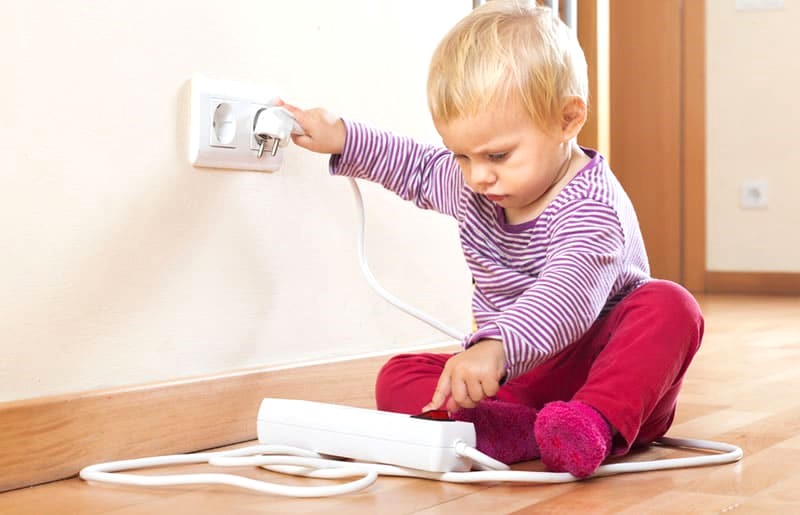Comprehending the Risks of Electrical Hazards at Home

It can be easy to overlook the fact that only a century ago, having electricity in households was a new idea and posed significant hazards. However, in the past hundred years, safety measures have advanced, leading us to believe that electricity is now entirely secure.
In this article, we will discuss the typical electrical dangers that can be found in our households and provide advice on how to protect ourselves from them.
Understanding the Elements of an Electrical Hazard
The primary concern associated with electricity is typically electric shocks, however, advancements in product safety regulations have reduced the frequency of this occurrence. When it comes to performing DIY tasks on one’s electrical system, the potential risks are notably greater and should only be attempted by individuals who possess adequate knowledge of the dangers and appropriate safety protocols. However, in everyday situations, electric shocks are relatively uncommon.
Household Electrical Dangers and How to Avoid Them
Obsolete Electrical Wiring
The electrical capacity of older homes may not be suitable for modern appliances, which can increase the likelihood of electrical fires. Materials such as knob-and-tube or aluminum wiring, which may have been used in the past, can deteriorate over time and pose a fire hazard.
Burdensome Electrical Circuits
The amp load rating is a crucial factor for all circuits. If this rating is surpassed, the wires may overheat, which could result in an electrical fire.
In case you identify any of these indications, it is recommended to disconnect certain devices and seek assistance from an electrician to safely redistribute the electrical load.
Defective or Faulty Wiring
If you suspect that there may be an issue with the wiring, cease using the impacted outlets and promptly seek the assistance of a certified electrician to avoid the potential danger of a fire or electric shock.
Improper Use of Extension Cords
Using extension cords can be very convenient, but they can also be easily misused. Every year, over 3000 home fires are caused by these cords. However, by following these suggestions, many of these incidents could have been prevented.
Appropriate utilization of extension cords:
- Check the Rating
- Fully Unravel
- Inspect for Damage
- Plug Into Grounded Outlets
- Use for Temporary Needs
- Keep Dry
- Secure the Cord
Electrical Systems Installed Incorrectly
Although tackling DIY projects can be fulfilling, electrical tasks should not be attempted without proper qualifications. Inadequately installed electrical systems can result in dangerous situations such as electrical fires and electrocution. It is crucial to always employ a licensed electrician for any electrical work in your household to guarantee compliance with regulations and safe installation.
Avoiding Home Electrical Hazards
The significance of routine electrical assessments cannot be emphasized enough. Carried out by expert electricians, these assessments identify issues before they can worsen, and guarantee that your household’s electrical framework complies with existing safety regulations.
Prior to purchasing a new house, it is recommended to conduct inspections. In addition, after significant renovations, and as a general rule, every 10 years for recently built homes and every 3-5 years for older homes, inspections should also be performed.
Do you know the last time your home’s wiring was inspected? If not, now is a good time to have it checked so you can rest easy knowing that your property is safe.





